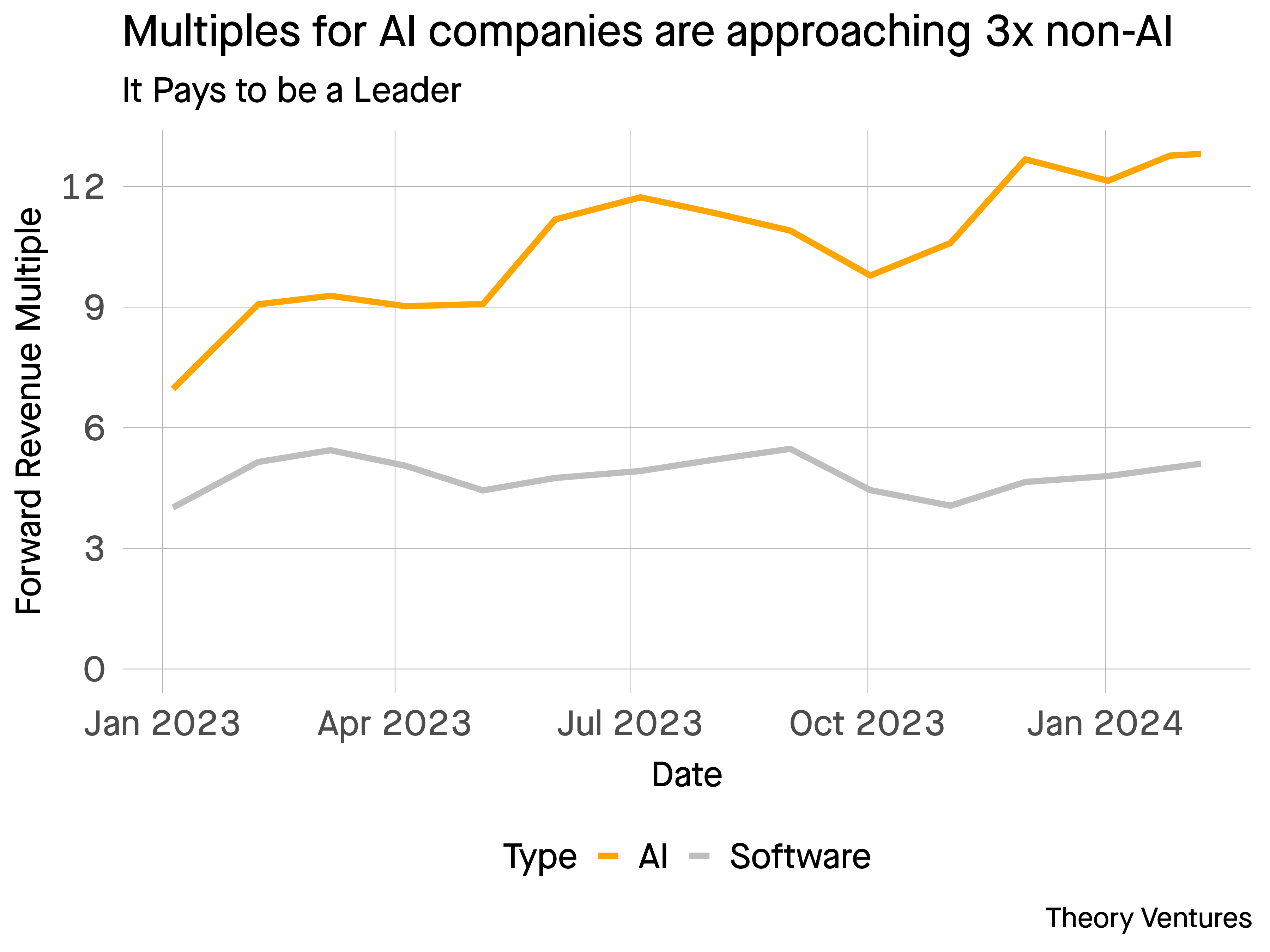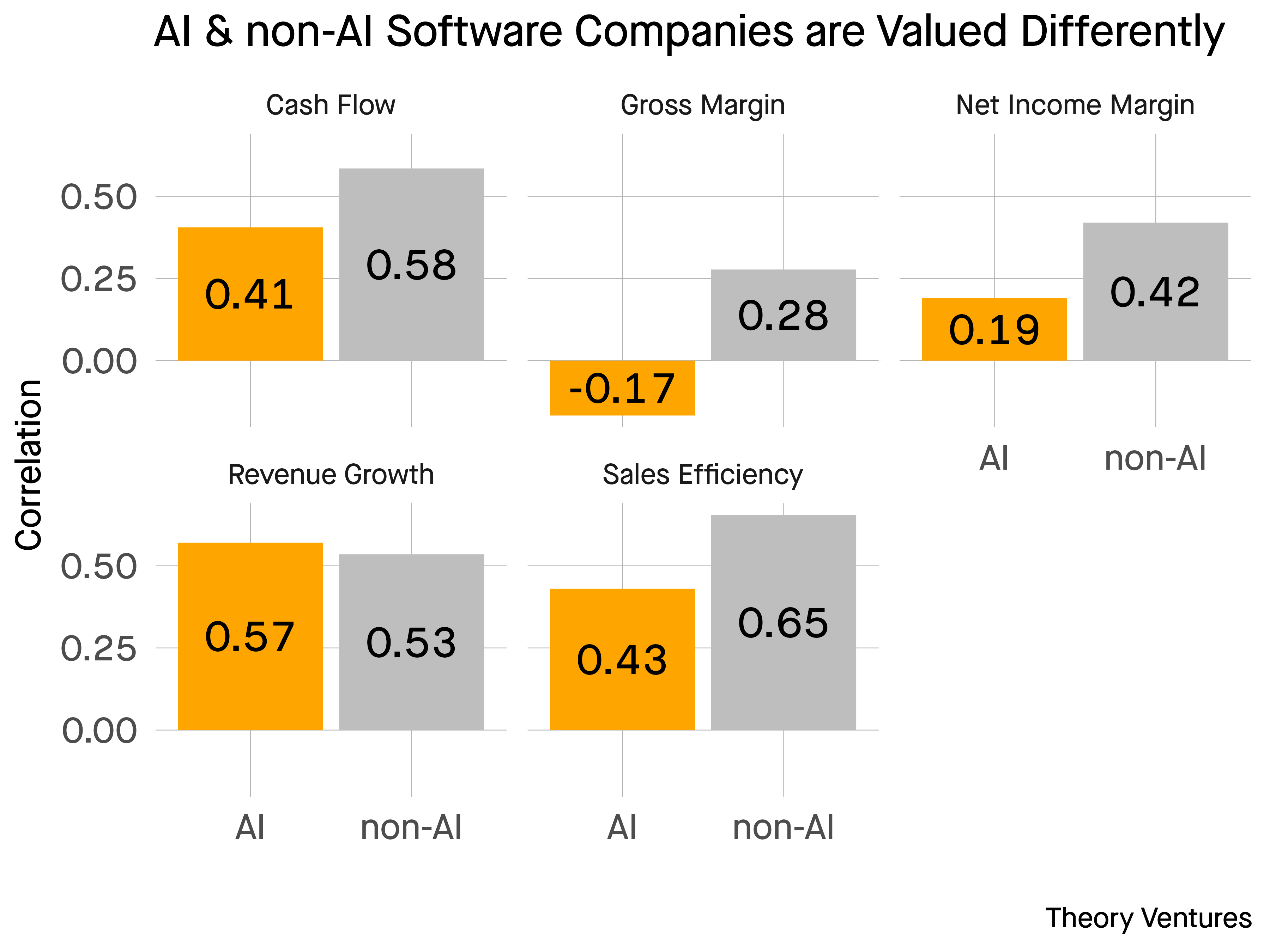The Theory AI Index of publicly traded companies continue to outperform more classical software companies since we published the index earlier this year.

In addition to the delta in absolute multiple, is there a difference in the factors that drive valuation?

Across the five most important metrics, AI companies’ valuation correlates isn’t that much different than non-AI companies.
Revenue growth, sales efficiency, & cash flow are all relatively similar. So is net income margin, although the AI correlate is about half. The only one that stands out is gross margin, where the correlate is mildly negative.
| Rank | AI | Non-AI |
|---|---|---|
| 1 | Revenue Growth | Sales Efficiency |
| 2 | Sales Efficiency | Cash Flow Margin |
| 3 | Cash Flow Margin | Revenue Growth |
| 4 | Net Income Margin | Net Income Margin |
| 5 | Gross Margin | Gross Margin |
Let’s look at the stack rank.
Revenue growth & sales efficiency are top correlates for valuation. Meanwhile the profitability metrics of cash flow margin, net income margin & gross margin are less important.
There are some meaningful differences in the order of magnitude to which these correlates correspond to the forward multiple, but that’s very likely explained by broader differences between these two categories underlying business characteristics.
So while AI companies do fetch a premium, public market investors view them as software companies, even if they do have robots furiously typing away inside their data centers.